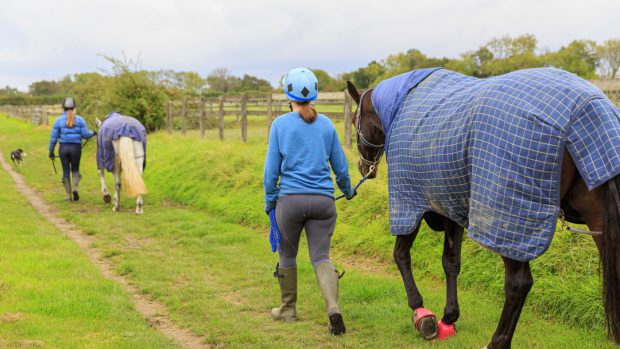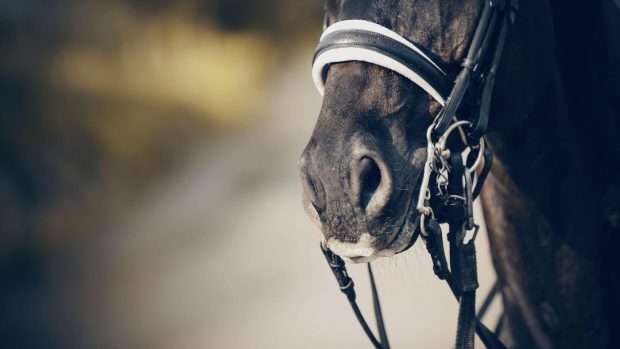Horse & Hound's charity of the year World Horse Welfare relies on members of the public to be its eyes and ears. Here the charity explains when you should call their welfare line — and when a call is not necessary
All calls are confidential and World Horse Welfare would always encourage people to contact them if they are in any doubt as to the well-being of any horse, but here are a few specific things to look out for.
Call the World Horse Welfare welfare line as a matter of urgency if…
Collapsed
Horses will lie down to sleep so it is important wherever possible to distinguish between a horse which is collapsed and one which is simply lying down.
Non-weight-bearing lameness
This is where the horse is unable to put one foot to the floor or clearly unable to put any weight on one limb. Horses will often ‘rest’ a hind leg when they’re standing, so it is important wherever possible to distinguish between a lame horse and one which is resting a leg.
Severe laminitis
This is a serious condition which affects the hooves of the horse and severely affected animals will have a ‘pottery’ walk and may stand in a particular way, leaning back on their heels to relieve the weight on their front legs.
Severe injury
Anything which is obviously causing serious pain or distress to the horse.
Trapped
This could include caught in fencing, stuck in a ditch, tangled in a tether or anything similar.
Other issues which are perhaps not immediately life-threatening but may still require prompt attention include:
Weight problems (both overweight and underweight horses)
Key things to assess on an underweight horse are whether the ribs and spine are prominent and if the hip bones are protruding. Horses often lose weight during the winter; a time which coincides with them having long winter coats. This long hair can disguise poor body weight and areas such as ribs can be hidden. One of the more reliable areas to look at is the rear view as horses will drop weight either side of their spine and can appear ‘triangular’ from behind.
Overgrown feet
If hooves are very long or have severe cracks in them, particularly if this is affecting the way the horse moves, they should be seen by a professional.
Lameness
Untreated injury
Any other physical problem (e.g. skin condition, disease, etc)
Continued below…
Channel your inner Mary Berry to help horses throughout the world
Marathon aim for equestrian fundraisers
Examples where there is no need for World Horse Welfare to attend:
Unfortunately there are a number of issues which, although not ideal, are not illegal and can therefore be very difficult for the charity to resolve. The following are examples of such and usually there is no need for them to attend unless the horse has one of the issues listed above or is clearly in danger or obvious distress.
Lack of rug
Most horses in the UK can cope without a rug in winter.
Lack of shelter
Shelter can be natural as well as man-made. Ideally horses should always have access to shelter but it is not a legal requirement.
Tethering
It is legal to tether horses providing it is not causing them a physical problem or done in a dangerous way. Many tethered horses will not be left with water at all times for a variety of reasons — although not always evident, owners of tethered horses will often bring water and food at specific times during the day (possibly very early in the morning or very late at night).
Lack of food or water
It is not a legal requirement to provide these at all times so there is nothing we can do about this specifically. However, horses which aren’t getting food or water will soon start to show physical signs, in which case we would encourage people to contact us as soon as possible.
Horses straying on the road should always be reported to the police as a matter of urgency
If there are any physical problems with the horses, the charity can also be contacted.
Ragwort problems
This should be reported to Natural England.
Lack of companionship
Although horses are herd animals and therefore ideally should be kept with others, it is not a legal requirement.
Bad condition of the field
Waterlogged or muddy fields.
If any of these situations are accompanied by a physical problem with the horse, World Horse Welfare would like to know more. It is also always happy to discuss individual situations in more detail, so please don’t hesitate to contact them if you are unsure.




